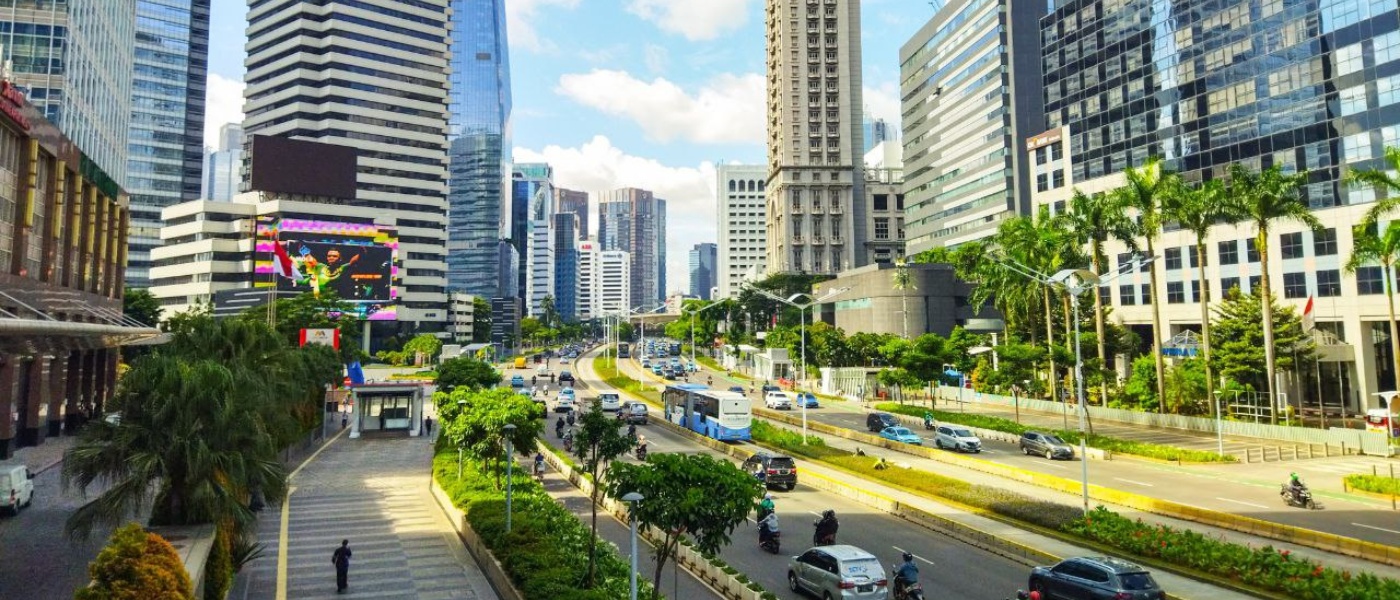
Expanding into new markets presents both exciting opportunities and unique challenges for businesses seeking to broaden their global footprint. In recent years, the Indonesian market has garnered increased attention due to its burgeoning economy, growing consumer base, and strategic geographical location. This article delves into the prospects, insights, and challenges associated with entering the Indonesian market.
• Economic Growth: Indonesia, as one of the largest economies in Southeast Asia, has sustained robust economic growth.
• Expanding Middle Class: The country’s expanding middle class is a key driver for consumer spending. According to the World Bank, people with daily expenditures between US$7.75–US$38 are classified as middle-class. This group of 52 million Indonesians is sometimes called the concrete middle class. Another group is the aspiring middle class or people who spend between US$3.3–US$7.75 per day. Around 115 million Indonesians in this category are no longer living in poverty but still need economic security.
The economic significance of this expanding middle class is multifaceted. Increased consumer spending stimulates various sectors of the economy, from retail and housing to leisure and technology. Moreover, the rise of the middle class is indicative of broader socio-economic improvements. As individuals transition from poverty to economic stability, there is a corresponding enhancement in living standards, access to education, and overall quality of life. This transformation contributes to the country’s social development, fostering a more robust and resilient society.
• Natural resources: Indonesia possesses a significant and often untapped array of mineral resources. The mining sector, encompassing the extraction of oil and natural gas, constitutes approximately ten percent of the nation’s GDP. Through both exports and taxation, this sector plays a substantial role in generating foreign-exchange earnings and contributing to overall economic development.
• Strategic Location: Indonesia’s strategic location in the heart of Southeast Asia positions it as a hub for regional trade and investment.
Indonesia’s vast and diverse economy presents a wide range of attractive sectors for foreign investment. Key industries with promising prospects include:
• E-commerce: Indonesia’s e-commerce market is poised for explosive growth, driven by increasing internet penetration and smartphone adoption. According E-CDB (e-commerce database aggregator) revenue is expected to show a compound annual growth rate (CAGR 2023-2027) of 8.1%, resulting in a projected market volume of US$92,422.5 million by 2027.
• Mining: Indonesia’s mining sector, rich in resources from coal to gold, plays a pivotal role in the nation’s economic growth. The impressive targeted production figures, such as 694.5 million metric tons of coal for 2023, highlight Indonesia’s ambition and dominance in the global mining market.
• Financial services: The Indonesian financial sector is undergoing rapid digital transformation, creating opportunities for fintech companies offering innovative solutions.
• Infrastructure: Indonesia’s infrastructure needs are immense, offering opportunities for companies involved in construction, transportation, and logistics.
• Manufacturing: Indonesia’s manufacturing sector is benefiting from rising domestic demand and growing export opportunities.
• Tourism: Indonesia’s rich cultural heritage and stunning natural beauty make it a prime destination for tourism, offering opportunities for hospitality, travel, and leisure companies.
Numerous foreign companies have successfully established themselves in Indonesia, demonstrating the country’s attractiveness for international businesses. Several unicorns have recently emerged, and a number of major companies have expanded their operations into Indonesia. Examples include Tokopedia, Gojek, Grab, Shopee, and Samsung.
Challenges and Considerations
Despite its immense potential, Indonesia presents certain challenges for foreign investors. These include:
• Regulatory complexity: Navigating Indonesia’s complex regulatory landscape can be daunting for foreign companies. SMEs face numerous challenges entering the Indonesian market due to inconsistent government policies, labor issues, IP protection concerns, opaque regulations, stringent standards, and pricing pressures. The omnibus bill’s labor provisions have sparked controversy, making it difficult for U.S. firms to attract and retain talent. Local Content Requirements (LCRs) remain a significant hurdle for U.S. companies operating in Indonesia.
• Bureaucracy: Indonesia’s bureaucracy can be slow and cumbersome, requiring patience and perseverance to navigate.
• Localization: Adapting products, services, and marketing strategies to the local market is crucial for long-term success.
• Language barriers: While English is becoming increasingly prevalent in business circles, fluency in Bahasa Indonesia is often essential for building strong relationships with local partners and customers.
Navigating the Indonesian market can be a complex undertaking for foreign companies, especially for those with limited experience in the region. A market entry firm such as ASEAN Business partners can provide invaluable assistance in guiding companies through the process and maximizing their chances of success. ABP can help by conducting thorough market research, developing a tailored entry strategy, identifying suitable local partners, ensuring regulatory compliance, adapting products and marketing to local preferences, building relationships with government officials, assisting in talent acquisition, and providing ongoing support, a market entry firm can significantly reduce the risks and challenges associated with entering the Indonesian market.

Caramia Whardana is Country Manager of our Indonesian subsidiary, Indonesia Business Partners. Caramia has over 30 years of experience in Indonesia’s banking sector, wherein she held multiple senior management positions in HSBC Indonesia, across various functions.
Stay up to update with our latest news.
Have Us Contact You
